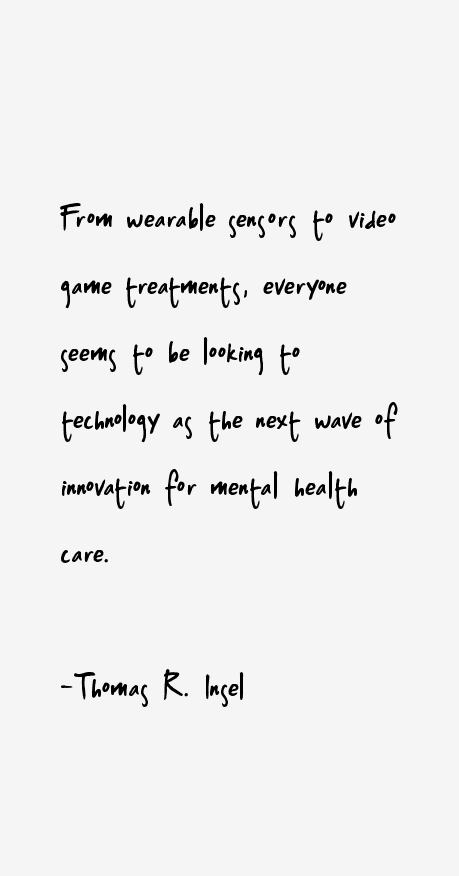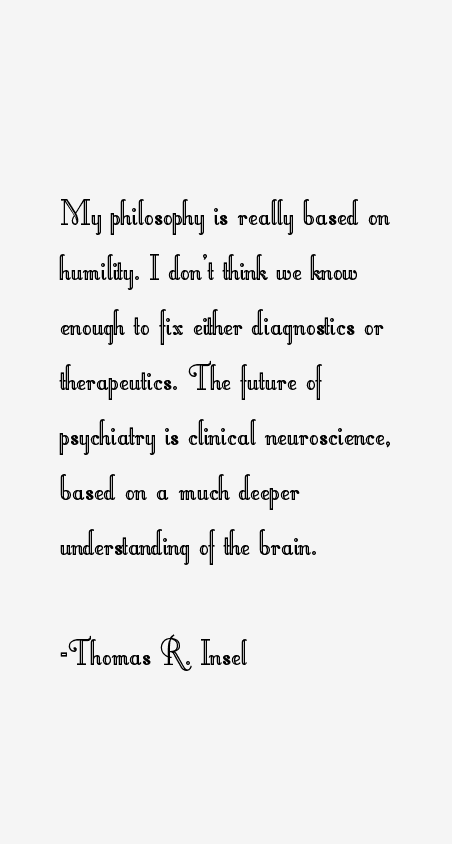Thomas R. Insel Quotes & Sayings
22 most famous Thomas R. Insel quotes and sayings (scientist). These are the first 10 quotes we have.

“In the 1830s, Dorothea Dix revolutionized the care of people with mental illness by taking them out of jails and caring for them in asylums, later known as state hospitals.”

“After a century of studying schizophrenia, the cause of the disorder remains unknown.”

“From wearable sensors to video game treatments, everyone seems to be looking to technology as the next wave of innovation for mental health care.”

“My philosophy is really based on humility. I don't think we know enough to fix either diagnostics or therapeutics. The future of psychiatry is clinical neuroscience, based on a much deeper understanding of the brain.”
“Neuroscientists talk a lot about brain circuits. In fact, the word 'circuit' is probably misleading. We do not know where most circuits begin and end. And unlike an electrical circuit, brain connections are heavily reciprocal and recursive, so that a direction of information flow can be inferred but sometimes not proven.”
“For bipolar in adults, I think there's pretty good agreement about what this looks like. For bipolar in children, there is some considerable debate about where are the boundaries. At the mild end, are these just kids who are active? Is this the class clown at the very severe - is this something other than a mood disorder?”
“Most of our brain cells are glial cells, once thought to be mere support cells, but now understood as having a critical role in brain function. Glial cells in the human brain are markedly different from glial cells in other brains, suggesting that they may be important in the evolution of brain function.”
“Nearly every business collects metrics on inventory, sales, and workplace process. Health care has been slow to measure these kinds of outcomes. Increasingly, general medicine, via either managed care or large practice settings, is improving by collecting data through electronic records and refining practice based on what works.”

“With the implementation of the Affordable Care Act and the Mental Health Parity and Addiction Equity Act, more people will have insurance coverage and, in principle, be eligible for more care.”

“What causes autism? As far as we know in 2013, there is no single gene or single environmental factor that accounts for the more than 1 million Americans with ASDs.”
Thomas R. Insel Quotes Rating
No Ratings Yet
Leave A Comment
























